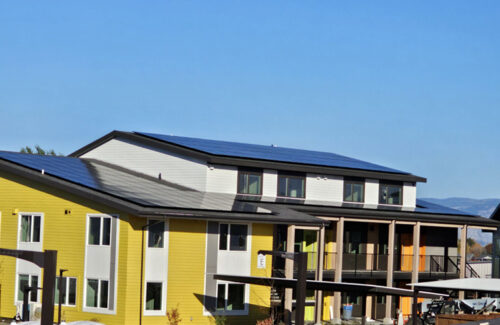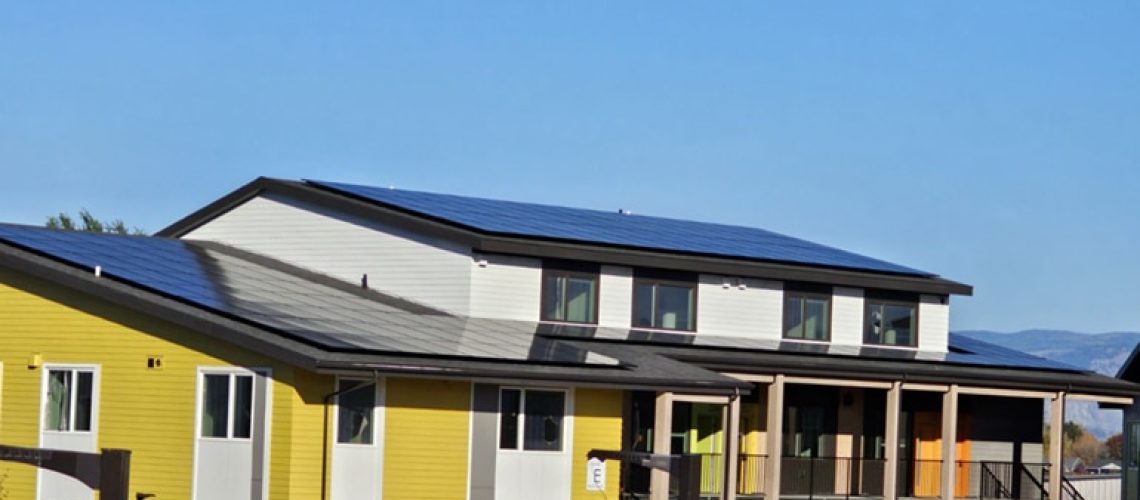
A multi-family solar install by Enterprise Electric.
The NC Clean Energy Technology Center (NCCETC) released its Q3 2024 edition of “The 50 States of Solar.” The quarterly series provides insights on state regulatory and legislative discussions and actions on distributed solar policy, with a focus on net metering, distributed solar valuation, community solar, residential fixed charges, residential demand and solar charges, third-party ownership and utility-led rooftop solar programs.
The report finds that 42 states, plus the District of Columbia and Puerto Rico, took some type of distributed solar policy action during Q3 2024 (see figure below), with the greatest number of actions continuing to address net-metering policies (51), and residential fixed charge or minimum bill increases (48), and community solar policies (36). A total of 157 distributed solar policy actions were taken during Q3 2024, with the most actions taken in California, Arizona, Massachusetts, Michigan, New York, Pennsylvania and Oregon.
Q3 2024 Policy Action on Net Metering, Rate Design and Solar Ownership
The report identifies three trends in solar policy activity taken in Q3 2024: (1) states refining multi-family building participation in net metering, (2) states reviewing size caps for solar systems, and (3) states re-examining previously approved solar compensation mechanisms.
“Several regulatory proceedings were initiated this quarter to consider changes to existing net metering system caps,” said Justin Lindemann, Policy Analyst at NCCETC. “Regarding significant proposals, utility regulators in Alaska proposed an increase to the state’s aggregate net metering capacity limit that is more than 13 times higher than the current limit.”
The report notes the top five distributed solar policy actions of Q3 2024:
- Appalachian Power filing a net metering successor tariff with Virginia regulators;
- Connecticut regulators approving new rules for multi-family net metering;
- The Governor of California vetoing changes to multi-tenant and public school net metering;
- A Florida municipal utility detailing planned residential and solar rate design changes; and
- Alaska regulators proposing an increase in the aggregate cap for net metering from 1.5% to 20% of the electric utility’s average retail demand.
“Solar rules continue their evolution this quarter,” said Vincent Potter, senior policy analyst at NCCETC. “Policymakers in several states are considering and/or implementing changes for solar customer-generators, including time-of-use rate impact analysis in Maryland, transition planning for Minnesota’s permanent community solar program and successor net metering programs and community solar credit rate updates in Virginia.”
News item from the NC Clean Energy Technology Center



